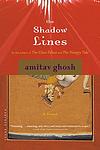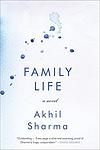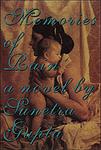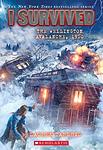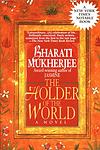The Greatest Bulgarian, Indian "Fiction" Books Since 1980
Click to learn how this list is calculated.
This list represents a comprehensive and trusted collection of the greatest books. Developed through a specialized algorithm, it brings together 300 'best of' book lists to form a definitive guide to the world's most acclaimed books. For those interested in how these books are chosen, additional details can be found on the rankings page.
Genres
Countries
Date Range
Reading Statistics
Click the button below to see how many of these books you've read!
Download
If you're interested in downloading this list as a CSV file for use in a spreadsheet application, you can easily do so by clicking the button below. Please note that to ensure a manageable file size and faster download, the CSV will include details for only the first 500 books.
Download-
1. Midnight's Children by Salman Rushdie
The novel tells the story of Saleem Sinai, who was born at the exact moment when India gained its independence. As a result, he shares a mystical connection with other children born at the same time, all of whom possess unique, magical abilities. As Saleem grows up, his life mirrors the political and cultural changes happening in his country, from the partition of India and Pakistan, to the Bangladesh War of Independence. The story is a blend of historical fiction and magical realism, exploring themes of identity, fate, and the power of storytelling.
-
2. The God of Small Things by Arundhati Roy
This novel is a poignant tale of fraternal twins, a boy and a girl, who navigate through their childhood in Kerala, India, amidst a backdrop of political unrest and societal norms. The story, set in 1969, explores the complexities of their family's history and the tragic events that shape their lives. Their mother's transgression of caste and societal norms by having an affair with an untouchable leads to disastrous consequences, revealing the oppressive nature of the caste system and the destructive power of forbidden love. The novel also delves into themes of postcolonial identity, gender roles, and the lingering effects of trauma.
-
3. A Suitable Boy by Vikram Seth
Set in 1950s India, this epic novel follows the story of four families over a period of 18 months, focusing primarily on the young woman Lata and her mother's quest to find her a suitable husband. The narrative explores the political, social, and personal upheavals in a newly independent India, struggling with its own identity amidst the backdrop of a society grappling with religious tensions, land reforms, and the shaping of a modern democratic state. Lata's journey is an exploration of love, ambition, and the weight of familial duty.
-
4. A Fine Balance by Rohinton Mistry
"A Fine Balance" is a poignant narrative set in India during the 1970s, a time of political turmoil and upheaval. The plot revolves around four diverse characters - a widow, a young student, and two tailors - who are brought together by fate. Through their interconnected lives, the book explores themes of caste, poverty, political corruption, and the human spirit's resilience. It offers a profound exploration of the delicate balance that sustains life amidst adversity.
-
5. Clear Light of Day by Anita Desai
"Clear Light of Day" is a novel set in Old Delhi, which explores the dynamics of the Das family. The story shifts back and forth in time, reflecting on the lives of siblings Bim, Raja, Baba, and Tara, and their relationships with each other and their aunts. The narrative delves into themes of memory, time, and decay, as well as the political upheaval of the Partition of India. The novel is a poignant study of family relationships, personal change, and loss.
-
6. The White Tiger by Aravind Adiga
"The White Tiger" is a darkly humorous novel set in modern-day India that explores the country's class struggle through the eyes of an ambitious and cunning protagonist. Born in a poor village, he moves to Delhi to work as a chauffeur for a rich family. He eventually breaks free from his life of servitude by committing an act of shocking violence, and uses his newfound freedom to become a successful entrepreneur in Bangalore. The story, told through a series of letters written to the Chinese Premier, is a scathing critique of India's social and economic disparities, and the corruption that permeates all levels of society.
-
7. The River Sutra by Gita Mehta
"The River Sutra" by Gita Mehta is a captivating novel that explores the intertwining lives of various characters along the sacred river Narmada in India. Through vivid storytelling and rich descriptions, the book delves into themes of spirituality, love, and the search for meaning in life. As the characters embark on journeys of self-discovery, the river serves as a powerful metaphor for the flow of life and the interconnectedness of all beings. With its lyrical prose and thought-provoking narrative, "The River Sutra" offers a profound exploration of the human experience and the timeless wisdom of ancient traditions.
-
8. The Great Indian Novel by Shashi Tharoor
This book is a satirical take on Indian politics and history, cleverly intertwined with characters and events from the epic Mahabharata. The narrative presents a parallel between the two, with the characters in the novel mirroring significant figures from India's political scene during the Independence and post-Independence era. The book is a humorous yet thought-provoking critique of Indian society and politics, offering a unique blend of myth, history, and satire.
-
9. A Ballad for Georg Henig by Viktor Paskov
"A Ballad for Georg Henig" is a narrative that explores the life of a Jewish craftsman and violin maker, Georg Henig, in the 18th century. The story is set in Bulgaria and delves into the historical events and cultural dynamics of the time, including the Ottoman rule and the social status of Jews. The protagonist's life is filled with love, loss, and the quest for artistic perfection, all against the backdrop of a society marked by religious and ethnic tensions.
-
10. The Inheritance of Loss by Kiran Desai
This novel explores themes of love, loss, and the human struggle for identity amidst political unrest. Set in India during the Nepalese movement for an independent state, the narrative follows the lives of a retired judge living in the Himalayas, his granddaughter, and his cook. As the political situation worsens, each character must grapple with their own personal issues, including the judge's regret over his failed marriage and his granddaughter's struggle to find her place in the world. The cook, meanwhile, dreams of a better life for his son in the United States. The narrative weaves together these individual stories to create a poignant tapestry of human resilience in the face of adversity.
-
11. The Shadow Lines by Amitav Ghosh
"The Shadow Lines" is a novel that explores themes of memory, family, and national identity through the eyes of a young boy and his experiences growing up in Calcutta, India. The narrative is framed by two major historical events: the 1964 Dhaka Riots and the 1942 World War II. The protagonist's relationships with his family and his personal experiences are juxtaposed with these events, highlighting the complexities of identity, memory, and the lasting impacts of historical events on individual lives. The novel also delves into the arbitrary nature of national borders and the shadow lines they draw between people and their histories.
-
12. Natural Novel by Georgi Gospodinov
"Natural Novel" is a thought-provoking and imaginative work that seamlessly weaves together various narratives and perspectives. The book explores the concept of storytelling and its power to shape our understanding of reality. Through a blend of fiction, memoir, and philosophical musings, the author delves into the complexities of human existence, the interconnectedness of life, and the search for meaning in a world filled with both beauty and tragedy. With its poetic prose and profound insights, "Natural Novel" invites readers to contemplate the boundaries between truth and fiction, ultimately challenging conventional notions of storytelling.
-
13. Family Life by Akhil Sharma
Family Life is a poignant, semi-autobiographical novel that follows the experiences of an Indian family that immigrates to America in the late 1970s. Their dream of a better life is shattered when the older son suffers a terrible accident that leaves him brain-damaged. The story is narrated by the younger son, who struggles with the pressures of his parents' expectations, the trauma of his brother's condition, and the cultural dislocation of being an immigrant in America. The novel explores themes of family, love, loss, and the immigrant experience.
-
14. The Golden Gate by Vikram Seth
Set in the 1980s, the novel follows the life of a group of friends living in San Francisco. The protagonist, a successful yet lonely executive, is persuaded by his former girlfriend to place a personal ad, leading to a relationship with a musician. The narrative delves into their relationship, their friends' lives, and the various complications they face, including issues of love, friendship, sexuality, and death. The unique aspect of this book is that it is written entirely in verse, specifically in sonnet form.
-
15. Memories of Rain by Sunetra Gupta
The novel explores the crumbling marriage of a Bengali woman and her Greek husband. The narrative alternates between Kolkata, India, and London, England, and spans over a decade, capturing the protagonist's emotional turmoil, her struggle to reconcile her Indian heritage with her Western lifestyle, and her eventual decision to leave her unfaithful husband. The novel is rich in poetic language and imagery, and it delves deep into themes of identity, cultural displacement, and the complexities of love and betrayal.
-
16. Avalanche by Blaga Dimitrova
The novel explores the psychological and emotional landscapes of its characters against the backdrop of a natural disaster. It delves into the lives of a group of people trapped in a mountain hotel by an avalanche, examining their personal stories, relationships, and the societal structures that define them. As they confront the possibility of death and the breakdown of social order, the characters are forced to reevaluate their lives, revealing the complex interplay of human nature and the forces beyond our control. The narrative weaves together themes of love, betrayal, and the quest for meaning, all while questioning the very essence of existence and human connection amidst the chaos of the avalanche.
-
17. Holder of the World: A Novel by Bharati Mukherjee
The novel explores the life of Hannah Easton, a woman born in 17th century Salem, who gets married to a British adventurer and travels to India. In India, she becomes the concubine of a local ruler and takes on the name "The Holder of the World". The story is narrated by a 20th-century woman who discovers Hannah's story through a virtual reality device. The narrative weaves together the historical and the contemporary, the East and the West, and the real and the virtual, to create a rich tapestry of a woman's life and the cultural clashes she experiences.
-
18. Солунският чудотворец by Fani Popova-Mutafova
The book is a historical novel set in the early 20th century, revolving around the life of a revered monk known for his miraculous healing powers in the city of Thessaloniki. The narrative delves into the complexities of the Balkan Wars and the socio-political turmoil of the era, as seen through the eyes of various characters whose lives intersect with the monk's. As they seek solace and miracles, the story explores themes of faith, hope, and the human struggle, painting a vivid picture of the period's cultural and historical landscape.
-
19. Wolf Hunt by Ivaylo Petrov
"Wolf Hunt" is a historical novel set in the early 20th century in a rural Bulgarian village, where the lives of peasants are depicted with stark realism. The narrative revolves around a group of villagers who are tasked with hunting down a wolf that has been terrorizing their livestock. As the hunt progresses, the story delves into the complex relationships and social dynamics within the community, revealing the struggles, hardships, and resilience of the human spirit in the face of poverty, oppression, and the changing tides of history. The novel serves as a metaphor for the political and social upheavals of the time, exploring themes of survival, morality, and the human condition.
-
20. Rich Like Us by Nayantara Sahgal
Set against the backdrop of the Emergency in 1970s India, the novel weaves together the lives of two women from different social strata: an affluent London-born woman who marries an Indian businessman and a senior bureaucrat's daughter who becomes a political activist. As the political climate in India grows increasingly oppressive, their stories intersect, exploring themes of power, corruption, and the struggle for democracy. Through their personal and political journeys, the narrative delves into the complexities of wealth, class, and the impact of colonialism, while critiquing the authoritarian regime that threatens the moral fabric of Indian society.
-
21. Nampally Road by Meena Alexander
"Nampally Road" is a poignant narrative set against the backdrop of political turbulence in India. The story follows Mira Kannadical, a young woman who returns to Hyderabad after studying in England, only to find herself amidst a society rife with corruption, poverty, and political unrest. As she takes up a teaching position and begins to build a life, Mira's journey is interwoven with her personal quest for identity and her engagement with the struggles of the people around her. The novel explores themes of self-discovery, social injustice, and the complexities of postcolonial India, all while painting a vivid portrait of the city of Hyderabad and the titular Nampally Road, which becomes a symbol of the country's chaotic and vibrant life.
-
22. Incantations And Other Stories by Anjana Appachana
"Incantations And Other Stories" is a collection of short stories that delve into the lives of Indian women, exploring themes of tradition, modernity, and identity. The narratives often focus on the personal struggles and inner lives of these women as they navigate societal expectations and their own desires. Set against the backdrop of Indian culture, the stories blend the real with the surreal, weaving together the everyday with the magical through the use of incantations and folklore. The book offers a poignant look at the complexities of life and the power of storytelling in shaping one's reality and sense of self.
-
23. Ние, мушмороците by Viktor Samuilov
The book is a satirical exploration of the human condition, set in a dystopian society where the ruling class, known as "mushmoroks," exercises absolute control over the lives of the citizens. Through a blend of dark humor and sharp social commentary, the narrative delves into themes of power, conformity, and the loss of individuality, presenting a bleak yet insightful reflection on the dangers of totalitarianism and the importance of resisting oppression. The story, while fictional, serves as a cautionary tale, urging readers to question authority and the structures that seek to diminish the human spirit.
-
24. In Custody by Anita Desai
The novel explores the life of Deven Sharma, a Hindi literature professor in the small town of Mirpore, India, who finds himself entangled in the complexities of cultural preservation and personal ambition. Tasked with interviewing and recording the works of Nur, a fading Urdu poet, Deven confronts the decline of the Urdu language and the poet's own waning relevance. As he navigates the chaotic and often comical world of Nur's entourage, Deven grapples with his own unfulfilled dreams, a strained marriage, and the stark realities of academic life. The story delves into themes of linguistic heritage, the burdens of tradition, and the search for identity amidst the changing cultural landscape of India.
-
25. Nation Of Fools: Scenes From Indian Life by Balraj Khanna
This book offers a satirical glimpse into the complexities and contradictions of Indian society through a series of interconnected stories. It delves into the lives of diverse characters, from different strata of society, who navigate the challenges of tradition, modernity, and the absurdities of everyday life in India. With humor and keen observation, the narrative exposes the follies and vices of its characters, reflecting on the broader social and cultural issues that pervade a nation in the throes of change.
Reading Statistics
Click the button below to see how many of these books you've read!
Download
If you're interested in downloading this list as a CSV file for use in a spreadsheet application, you can easily do so by clicking the button below. Please note that to ensure a manageable file size and faster download, the CSV will include details for only the first 500 books.
Download









